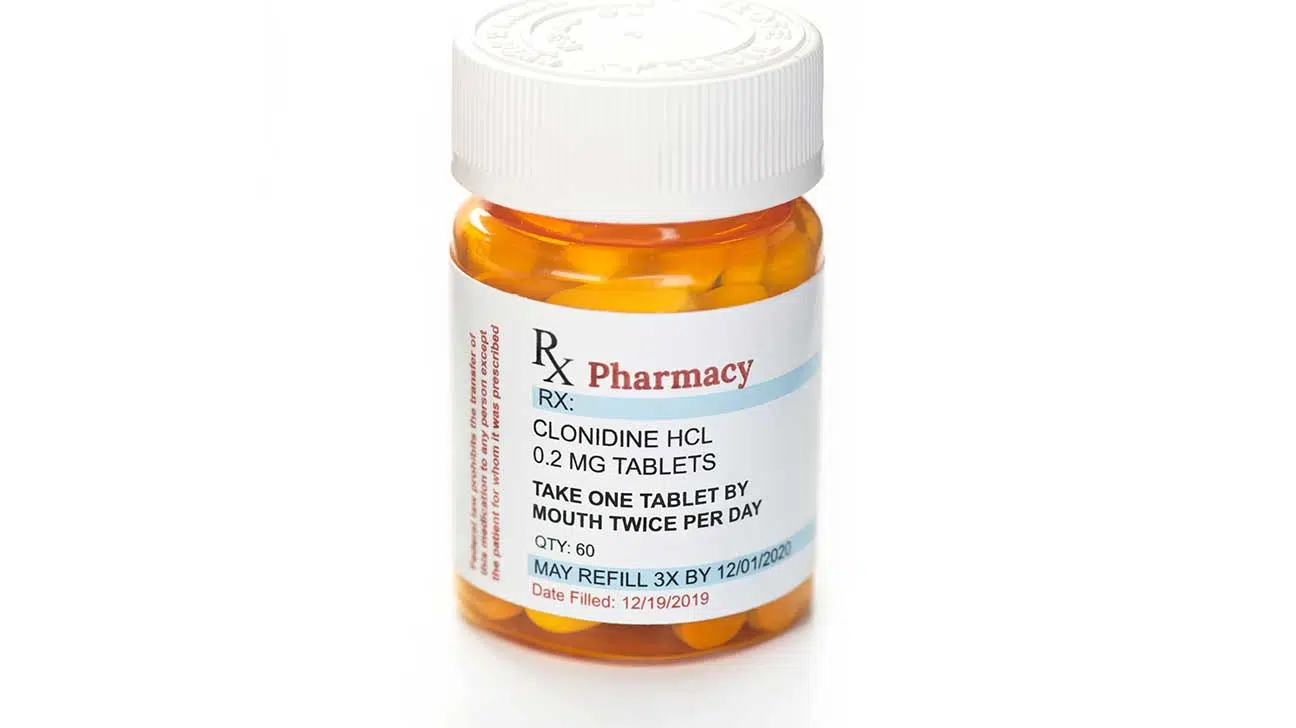
Clonidine is not a controlled substance. It is a medication used mainly for the treatment of high blood pressure (hypertension).
Prescription drugs like clonidine are reviewed by the Food and Drug Administration (FDA) and Drug Enforcement Administration (DEA) to determine if they have a high enough potential for misuse to be regulated as a controlled substance.
Clonidine is sold under the brand names Catapres and Kapvay. No forms of the drug are controlled substances.
Why Clonidine Is Not A Controlled Substance
There are multiple factors that go into determining whether a drug should be listed as a controlled substance.
The two most important factors are whether the drug is intoxicating and whether it has a high potential to be misused.
Does Not Produce A ‘High’
Clonidine does have some mental effects, which is why it is sometimes used to treat attention-deficit/hyperactivity disorder (ADHD).
However, unlike other ADHD prescription medications such as Adderall, clonidine does not produce a ‘high’ or increased pleasurable sensations or feelings of well-being, even when taken at high doses.
Low Misuse Potential
Clonidine is not very addictive compared to many drugs, such as opioids which are known to be very addictive.
The DEA and FDA have determined that clonidine has a low misuse potential, which is a major factor in it not being a controlled substance.
In other words, the risk of developing a clonidine addiction is low.
What Drug Class Is Clonidine?
Clonidine belongs to a class of drugs called centrally acting alpha-agonist hypotensive agents. This drug class includes other medications that are used to treat high blood pressure.
How Clonidine Works
Clonidine treats high blood pressure by lowering the heart rate and relaxing blood vessels so blood is able to flow through the system more easily.
The result is a lower risk of heart attack and other issues that commonly result from high blood pressure.
Clonidine is sometimes used as a medication for opioid withdrawal, where it can help relieve discomfort that occurs during this period.
Clonidine extended release tablets, sold under the brand name Kapvay, affect the area of the brain that relates to impulsivity and attention, which is how it treats ADHD.
Side Effects Of Clonidine Abuse
Although clonidine abuse is rare, it can happen. Clonidine sometimes is abused alongside other drugs like heroin or benzodiazepines.
Common side effects of clonidine abuse include:
- dry mouth
- weakness
- headache
- drowsiness
- nausea
- constipation
- vomiting
- decreased sexual function
- anxiety
- sedative effects
Can Prolonged Clonidine Use Be Dangerous?
Use of clonidine for a long period of time can be dangerous. Although rare, the drug can cause physical dependence, meaning withdrawal symptoms will arise if a person stops using it.
Clonidine withdrawal can include serious side effects like heart attacks that result from high blood pressure.
Clonidine withdrawal symptoms may include:
- nervousness
- high blood pressure
- nausea and vomiting
- headaches
- tremors
In some cases, clonidine withdrawal can lead to fatal symptoms which are mostly the result of high blood pressure.
Clonidine use is only safe when taken in accordance with medical advice from medical professionals.
Always consult with healthcare providers when stopping clonidine use. They will probably give you a tapering schedule, which can help counteract the adverse effects of withdrawal.
Find Substance Use Disorder Treatment Services
Although clonidine drug addiction is rare, it does happen. If you or a loved one is battling clonidine abuse, it may help to know which treatment options are available to address the issue.
Clonidine addiction is potentially life-threatening, and it requires a specialized addiction treatment program.
Treatment for this issue may start with inpatient detox before moving on to a rehab program that addresses the mental health issues contributing to addiction.
Substance abuse issues are complex and require a dedicated and specialized treatment approach. Contact us today to learn where you can go to get addiction treatment in your area.
Addiction Resource aims to provide only the most current, accurate information in regards to addiction and addiction treatment, which means we only reference the most credible sources available.
These include peer-reviewed journals, government entities and academic institutions, and leaders in addiction healthcare and advocacy. Learn more about how we safeguard our content by viewing our editorial policy.
- National Library of Medicine: MedLinePlus
https://medlineplus.gov/druginfo/meds/a682243.html - National Library of Medicine: StatPearls
https://medlineplus.gov/druginfo/meds/a682243.html


